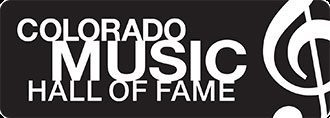On the eve of Joe Walsh & Barnstorm’s induction into the Colorado Music Hall of Fame, the 2000 film Almost Famous comes to mind. In the Academy Award-winning film, screenwriter Cameron Crowe expertly shares his experiences as a 15-year-old music journalist on the ‘70s rock scene.
I used to be one of those, too. The movie reflects a lot of what we lived, coming of age when the music business was less corporate and more of a community.
Growing up in Arvada, Colorado, I spent my days listening to the radio, blowing my allowance at the local record shop—and reading Creem magazine and the writing of, among others, the legendary Lester Bangs (played brilliantly in Almost Famous by Philip Seymour Hoffman). I played drums in garage bands, but it was pretty obvious that I wasn’t going to be playing at Red Rocks anytime soon.
So, I decided to channel my passion for music into writing about it. At age 15, I took a record review to the Arvada Citizen, the suburban weekly newspaper.
The editor was Mark Wolf, soon to be a fine reporter for the Rocky Mountain News, then a 22-year-old fresh out of college. And he decided to print my piece. I don’t think he called the Pulitzer committee, but I know he enjoyed having someone to sit at his feet slackjawed as he spun the story of how he saw the Yardbirds play at an Indiana nightclub while he was still in high school.
A few clippings later, I got up the moxie to contact RCA Records for an interview with the Guess Who, a band I dearly loved. The guys were touring in support of American Woman, their classic album, and I thought Burton Cummings had the most compelling vocal style in the world.
And I was told I could meet Cummings before the Guess Who played at the Denver Coliseum—a prospect that thrilled and terrified me in equal measure.
On that unfathomable day in July 1970, I got dressed and, wanting to make a good impression just like my mom taught me, I put on my brown wool suit, an orange shirt and matching tie. I took my place backstage, pen in one sweaty hand, spiral notebook in the other, and introduced myself.
Cummings was the epitome of rock star cool. Looking back, I’m sure that he must have pulled the road manager aside and said, “Who sent this geek?”
But to his credit, he came back into the dressing room, curled up in a chair and answered my questions, picking his toes the entire time. It taught me a valuable lesson right off the bat, that brilliant musicians weren’t gods—awe-struck elation had to be tempered in journalism.
Who could handle rejection at the tender age of 16? If Cummings had blown me off, I might have never recovered. But he didn’t—and with the zeal of the newly converted, I wanted to interview every rock band that I could.
I started thinking of story angles, an exclusive. I targeted Joe Walsh, who had come to national fame as the lead guitarist for the James Gang. He had left the band and moved to Colorado to start a solo career under the moniker Barnstorm. He was going to play a woodshedding gig at a nightclub on East Colfax.
Chest heaving, I drove to the joint, walked through the door—and was denied further access. You had to be 21—and having just turned 17, I wasn’t going to pass muster.
I asked the bouncer to get word to Walsh that I had tried to contact him. I went back to my car and pondered my next move…and five minutes later, Walsh came out to the parking lot, introduced himself and got into my Dodge Dart. He sat in the passenger seat and answered all of my questions for a half-hour. Then he went back inside, presumably to play a great show.
I was smitten.
I wound up going to journalism school, and I’ve interviewed well over 1,000 musicians. I still wait on them in hotel lobbies and backstage areas, hoping they’ll deign to speak to me. It sounds like nice work if you can get it, and I agree it’s been a blessed existence.
But the writer’s experience is different now. Publicists are paid to keep interviews short and shallow—on occasion, they come up with questions that you’re not allowed to ask. Too often, interviews become pure promotional events, not a chance to reveal anything about the music.
So when I watch Almost Famous, I see a reflection of what got me started in the first place—that the industry, often lost in cynicism, greed and disillusionment, is driven by the love of music. It’s the heart and soul of what I do.
And it’s time I thank Joe Walsh. When I wasn’t entirely sure if my heart was in it for the long haul, he kept an introverted teenager interested in writing about music.
G. Brown
CMHOF directorBenoit Daoust

